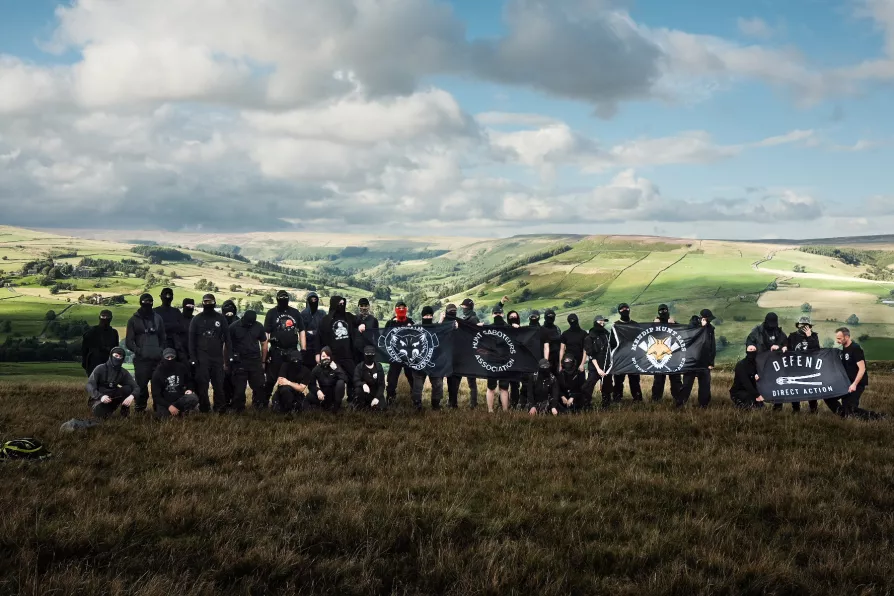The far right thrives on division, but denying racism within the left only strengthens it. As we mobilise for the All Together March, real solidarity demands honesty about our own failures, argues ROGER McKENZIE

 Hunt saboteurs, or ‘sabs,’ have now done battle in the countryside to protect wildlife every year during the hunting season from October to early April, for over half a century. (Photo credit: @AggrevatedTrespass)
Hunt saboteurs, or ‘sabs,’ have now done battle in the countryside to protect wildlife every year during the hunting season from October to early April, for over half a century. (Photo credit: @AggrevatedTrespass)
FOX HUNTS are closing and amalgamating at an unprecedented rate. Those who do manage to get out hunting are running short of social climbers willing to pay for the privilege. This has led to an extraordinarily high turnover of hunt staff (the people who do the actual hunting) with many leaving the sinking ship.
A recent expose of fox hunting on Channel 4 news saw a senior police officer say: “One side is trying to prevent something illegal, the other side is intent on perpetuating illegal activity.” In light of the history of this conflict, that is an extraordinary turnabout.
Hunting is, along with being a practice of enormous cruelty, a ritual of supremacy for the landed gentry. Once regularly attended by royalty, it is the sport of aristocrats. The feudal hierarchy of the countryside is paraded with everyone from the masters to the foot supporters dressed appropriately to their status.
The first recorded act of deliberate hunt sabotage by activists (and arguably the birth of the whole global animal rights movement) happened in a field in Devon in 1963, against a backdrop of anti-Vietnam war and anti-apartheid protests. Within a year the Hunt Saboteurs Association (HSA) was formed.
After a period of wild experimentation including the use of smoke flares and the hurling of meat to the hounds, hunt sabbing settled into a pattern, as sabs (always “sabs” never “sabbers”) learned how hunting worked and used those methods against the sport — for example, learning the use of the hunting horn to confuse hounds and take them away from their prey.
Sabs organised themselves into small self-reliant groups based in certain areas and covering certain hunts. If you’ve never been out then it’s been likened by some long-time practitioners as being “like full contact orienteering.”
With sab groups, many from universities, heading into the countryside to challenge the squirearchy it was hardly surprising that this was met first with violence, then a state crackdown, with arrest becoming a routine aspect of a hunt saboteur’s life.













